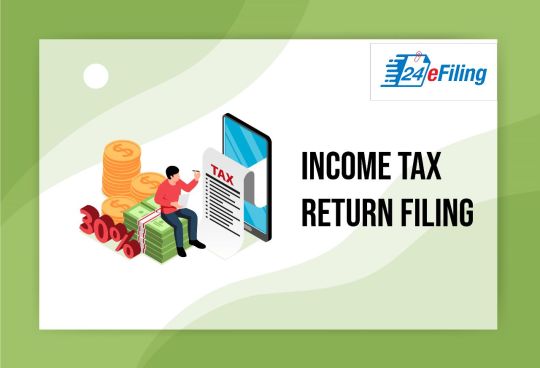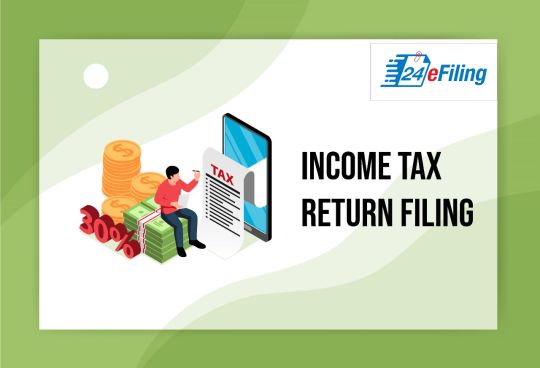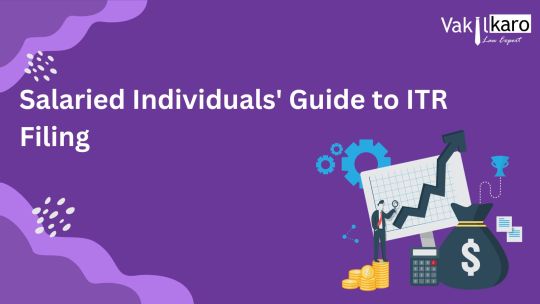#itr 1 filing online 2022-23
Text

The PAN card is a fundamental document for taxpayers in India, playing a crucial role in the ITR filing process. It not only serves as a means of identification but also aids in preventing tax evasion and ensuring transparency in financial transactions. Therefore, it is imperative for individuals and entities to obtain and maintain an active PAN card for their financial activities. Read More
#itr filing#income tax return filing#benefits of filing income tax return#nri income tax return filing in india#benefits of itr filing in hindi#use of pan card in hindi#how to file itr in case of no income#income tax filing#benefits of itr filing#income tax filing in tamil#itr 1 filing online 2022-23#nri tax in india#inoperative pan card itr filing#nri tax filing india#how to register for efiling#tax filing school
0 notes
Text
ITR फाइल कर चुके हैं तो इन 6 तरीकों से कर लें वेरिफाई ताकि जल्द मिल सके आपके रिफंड का पैसा
ITR फाइल कर चुके हैं तो इन 6 तरीकों से कर लें वेरिफाई ताकि जल्द मिल सके आपके रिफंड का पैसा
ITR Filing Process: असेसमेंट ईयर 2022-23 के लिए 5 करोड़ 82 लाख 88 हजार 962 लोगों ने अभी तक इनकम टैक्स रिटर्न दाखिल किया है। इनमें से 3.01 करोड़ आईटीआर सत्यापित होने की प्रक्रिया में हैं।
आईटीआर भरने की लास्ट डेट निकल चुकी है। अब इसे लेट फीस के साथ ही भरा जा सकता है। इनकम टैक्स डिपॉर्टमेंअ की वेबसाइट पर दिए गए आंकड़ों के मुताबिक 10.54 करोड़ इंडिविजुअल रजिस्टर्ड यूजर हैं। असेसमेंट ईयर 2022-23 के…

View On WordPress
#business news#ca guru ji#can itr filled after 31 july#file income tax return#filing itr#filing taxes online#how to file income tax return#income tax#income tax filing process#income tax registration process#income tax return#income tax return filing#income tax return filing 2021-22#income tax return filing online process#itr 1 filing#itr 1 filing online 2021-22#itr 1 filing online 2022-23#itr 3 e filing process#itr datę extended or not#itr filing#itr filing last date#itr filing new date#itr filing online#itr filing online 2021-22#itr filing online 2022-23#itr filing process#itr filing process 2022#itr filing till 31 december#itr last date#itr łatę fee
0 notes
Text
New Rules in the Banking Sector
Banking services must include accepting deposits, lending money, facilitating transactions, and offering various transaction products such as saving accounts, loans, and credit cards. Mainly bank is a type of financial institution that is permitted to accept customers' deposits and provide a loan. There are such types of banking sectors as Retail banks, Commercial banks, corporate banks, cooperative banks, Regional rural banks, central banks, and investment banks.
Why Banking sector is good?
Checking and saving accounts, loans, mortgage services, wealth management, providing credit and debit cards, and overdraft services, are the most important banking services in the banking sector.
How does the banking sector work?
The customers deposit their money in banks, and then banks lend the money in different loans like car loans, credit loans, business loans, home loans, etc. the loan recipients spend the money they borrow, then the banks earn the interest loans, and the process keeps money moving through the systems.
The rules of banking sectors:
Demat account holders' nomination declarations:
Demat account holders will have to provide nomination declarations or opt out of nominations by January 1, 2024. Account holders failing to do so will not be able to transact in stocks. Earlier, the deadline to furnish nomination details was September 30.
Aadhaar Card:
Aadhaar card holders wanting to change their details will be able to do so till December 31, 2024. However post this date, an amount of Rs 50 will be imposed on those wanting to change their personal details in the Aadhaar card.
KYC for SIM card:
All KYC-related work will be done in digital mode only. People applying for new SIM cards will not have to fill out paper forms for the Know-Your-Customer process.
Bank locker agreement:
People holding lockers in banks will have to sign the revised agreement by December 31, 2023. If customers will fail to do so, their lockers will be frozen.
New rule to save users from online fraud:
As smartphone usage has unscaled in India, online fraud and scams have unscaled and have seen a parallel increase. The government has been taking a decisive stance to curb these issues.
Legal consequences for fake SIMs:
As per the new Telecommunication Bill, individuals who will be found purchasing fake SIM cards will be facing severe consequences and the offenders will further be subjected to a jail term of up to 3 years and a fine worth Rs. 50 lakh.
Mandatory biometric details for verification:
Telecom companies will now collect biometric data which will be mandated for every customer who is purchasing a SIM card. The inclusion of biometric details is a measure to safeguard fraudulent SIM card transactions and ensures strict action against the offenders.
Income Tax Return:
People will not be able to file Income Tax Returns (ITR) for financial year 2022-23 from January 1, 2024. Those who have not filed ITR for 2022-23 can file them with penalty fee till December 31.
Inactive UPI IDs:
The National Payments Corporation of India (NPCI) in a circular dated 7 November, has asked payment apps and banks to deactivate the UPI IDs and numbers that have not been active for more than one year. Every bank and third-party app has to follow these till 31st December.
UPI transaction limit hiked for hospitals, schools.
Deactivation of inactive UPI IDs.
UPI Lite wallets transaction limit increased.
No authentication for UPI auto payments.
Interchange fee on UPI merchant payments.
Google Pay:
The Gpay limit per day for money transfers for users in India is ₹1, 00,000. Moreover, the maximum times you can send money in a day cannot exceed 10 in Gpay or any other UPI app.ShreeCom Infotech Pvt. Ltd. Pune offering different types of banking sectors software’s like Co-Operative credit society software, core banking software, Retail banking software, SMS banking software, Pat pedhi software, Employees co-op credit society software, salary earners society software or you can google search for banking software near me
#co-op credit society software#pat pedhi software#pat sanstha software#salary earners society software#retail banking software
0 notes
Text
Simplifying Your Tax Season: Finding Income Tax Filing Services Near You
Introduction:
As tax season approaches, the task of filing your income tax returns might seem daunting. Whether you're a seasoned taxpayer or a first-timer, having a reliable and convenient income tax filing service near you can make the process smoother. In this blog post, we'll explore the importance of timely tax filing, the benefits of using professional services, and how to find the right income tax filing assistance in your local area.
1. The Importance of Timely Income Tax Filing:
Filing your income tax returns on time is crucial to avoid penalties and legal consequences. Many individuals delay the process due to its complexity or lack of understanding, but with the right assistance, you can ensure compliance with tax regulations and enjoy peace of mind.
2. Benefits of Using Professional Income Tax Filing Services:
a. Expertise: Professional tax preparers are well-versed in tax laws and regulations. Their expertise can help you navigate the complexities of the tax code, ensuring accurate and efficient filing.
b. Time Savings: Filing taxes can be time-consuming, especially if you have a complex financial situation. Professional services can save you time and effort, allowing you to focus on other important aspects of your life.
c. Maximizing Deductions: Tax professionals are adept at identifying eligible deductions and credits, potentially saving you money. They can help you optimize your return and ensure you're not missing out on any available benefits.
d. Peace of Mind: With a qualified tax professional handling your filing, you can have peace of mind knowing that your returns are accurate and in compliance with tax laws.
3. How to Find Income Tax Filing Services Near You:
a. Local Tax Firms: Research local tax firms or accounting offices in your area. Many firms offer income tax filing services and can provide personalized assistance.
b. Online Platforms: Explore online platforms that connect you with tax professionals in your locality. These platforms often allow you to read reviews and compare services before making a decision.
c. Recommendations: Ask friends, family, or colleagues for recommendations. Personal experiences can offer valuable insights into the reliability and efficiency of local tax filing services.
d. Community Centers and Nonprofits: Some community centers and nonprofit organizations offer free or low-cost tax preparation services. Check with local community resources to see if such programs are available in your area.
Conclusion:
Filing your income tax returns doesn't have to be a stressful experience. By utilizing professional income tax filing services near you, you can simplify the process, ensure accuracy, and potentially maximize your returns. Take the proactive step of finding reliable assistance, and make this tax season a smoother and more rewarding experience.
Confused? Talk to our experts. Explore our guides and tools for a smooth filing experience:
- Income Tax e-Filing for FY 2022-23
- Income Tax Slabs for FY 2023-24
- Income Tax Calculator
- Section 80 Deductions
- Old vs New Tax Regime
- Check Aadhar PAN Card Link Status
- ITR Filing Last Date for FY 2022-23
- Capital Gains Tax in India
Have questions? Check out our FAQs or reach out to us. Let's make this tax season stress-free and rewarding for you! 💰📅
0 notes
Text
Last-Minute Income Tax Return Filing Guide: Don't Miss Today's Deadline!
Today marks the final day for filing your online income tax return in Delhi as emphasized in multiple official bulletins by the income tax department, with no extension being granted for the FY 2022-23 (AY 2023-24). If you have yet to file your income tax return, it is crucial to do so promptly today.
According to data released by the Income Tax Department, a considerable number of taxpayers have already successfully filed their ITRs for FY 2022-23 (AY 2023-24), and numerous taxpayers have also received their refunds.

Nevertheless, there are still several hundred salaried taxpayers who have not yet submitted their income tax returns for FY 2022-23. It's important to note that failing to file your ITR before the due date can lead to several consequences. If you miss today's deadline and file your return after the due date, you will be subject to a late fee. Non-furnishing or late furnishing of the return of income can also incur interest under section 234A. Additionally, there are fees under Section 234F for delayed filing, ranging from ₹1,000 to ₹5,000. It is, therefore, advisable to file your returns before the end of the due date.

If you are handling the income tax return filing process yourself, follow this step-by-step guide to avoid any errors:
Important documents needed:
The e-filing portal now provides pre-filled ITR forms, but certain incomes, such as capital gains, require manual filling. Prepare the following important documents while filing your income tax returns:
Form 16
Form 16A
Form 26AS
Capital gains statements
Proof of tax-saving investments
PAN Card
Medical insurance statement (if applicable)
Step-by-step guide to filing ITR:
· Go to the Income Tax e-Filing portal.
Log in to the portal using your user ID (PAN), Password, and Captcha code.
Click on the 'e-File' menu and select the 'Income Tax Return' link.
Choose the appropriate Income Tax Return (ITR) form. As a salaried taxpayer with Form 16, you can use either ITR-1 or ITR-2.
Select the assessment year (AY) for which you want to file the ITR. In this case, choose the assessment year 2023-24.
Validate all the data entered in the form and submit it.
After submitting your return, verify it through any available options, such as Aadhaar OTP, etc.
Finally, re-check all your details and upload the form. Remember, your job is not complete until you verify your Online Income Tax Return Service in Delhi.

Conclusion
You all go with your trusted provider of Income Tax Return Services, and you can rest assured knowing that your financial matters are in capable hands. Their commitment to professionalism, integrity, and client satisfaction sets them apart. Experience the difference Taxgoal can make in simplifying your financial journey and achieving your tax goals. Contact them today and take the first step toward a brighter financial future.
#Taxgoal#OnlineITRServices#TaxFiling#ITRDeadline#FinancialFreedom#lastdateITR#ITRforSalariedEmployess#ITRFiling
0 notes
Text
A GUIDE ALMANAC TO INCOME TAX RETURN FILING

Are you someone who has moved to Hyderabad recently to find a job or to do a job? Are you someone, In case if you are residing and doing a job in Hyderabad then you must know that all earning individuals in Telangana must file pay professional income tax returns (ITR) as per their Income, as per Indian Govt rules
According to the 2023 Oxford Economics report, Telangana’s capital city is expected to beat economic growth among many global cities in the Asia Pacific region. ( Add citation link as a superscript )
The city has surpassed Bengaluru in the new office space addition in the first half of the financial year 2022-23. The city is on its way to becoming a larger economy with different types of businesses. ( Add Graph screenshots )
The need for income tax filing also increases as there is exponential growth in the economy and the number of people filing.
Most people refrain from doing it because of the hectic procedures, but do you know that it is mandatory and also your right as it is the confirmation of your income?
If not, then you must read more about Income Tax filing and its benefits.
What is Income Tax Return Filing?
According to the Income Tax Act, Filing IT to the government of India is mandatory for all Indian Citizens to file Income tax returns. All individuals, an association or a firm, LLP, a local authority, or a Hindu undivided family are required to pay the income tax for each financial year under Income Tax laws.
Income Tax Return is often termed as ITR or IT returns. Through this ITR filing a taxpayer must record his total income earned during the fiscal year. Individuals can file their taxes Online or Offline at their convenience. It is filed in seven different forms: ITR 1, ITR 2, ITR 3, ITR 4, ITR 5, ITR 6, and ITR 7
ITR Forms Applicable Individuals/Bodies ITR 1 or Sahaj Form It is exclusively for individual taxpayers and not applicable to any other assessee. It can be used by individuals who earn a salary or pension, have income from a single property, have no income from capital gains or windfall wealth, and have no foreign assets or income. It can also be used to combine the income of a spouse or underage child if it meets the mentioned criteria, and if the agricultural income is less than Rs. 5,000. It applies to individuals who earn from multiple sources such as investments and have no foreign income or assets. ITR 2 Individuals or HUF who earn money from the sale of assets/property or foreign sources. It is also applicable to those who own multiple residential properties, have foreign assets, or earn above Rs 5,000 from agriculture. ITR 2 A Individuals or HUFs who earn income from multiple rental properties or various sources such as investments, fixed deposits, shares, etc. It is also applicable to those whose primary income is a salary or pension, and who have no income from foreign sources, capital gains, or windfall gains. Additionally, they should not have assets outside of India, and their agricultural income should be less than Rs 5,000. ITR 3 To be used by individual taxpayers or HUFs who are partners in a firm but do not conduct any business through the firm and do not earn any income from the firm’s operations. Typically filed by taxpayers whose only taxable income from the business is in the form of the following- CommissionRemunerationInterestBonusSalary ITR 4 Business persons and professionals such as doctors, engineers, designers, agents, retailers, and contractors, among others. ITR 4S Companies are other than companies claiming exemption under section 11. Section 11 pertains to charitable trusts / religious trusts for which ITR 7 is applicable. ITR 5 Individuals earning income from a business, a single housing property, or agriculture (below Rs. 5000), and those owning assets only in India. ITR 6 Companies other than companies claiming exemption under section 11. Section 11 pertains to charitable trusts / religious trusts for which ITR 7 is applicable. ITR 7 Persons including companies required to furnish return u/s 139(4A), 139(4B), 139(4C) or 139(4D) or 139(4E) or 139(4F). This includes religious & charitable trusts, political parties, scientific research associations, universities & colleges.
Documents required for Filing ITR
To file income tax returns online, certain documents are necessary. These include,
Pan card
Form 26AS
Form 16A, 16B, 16C
Salary Pay slips
Bank statements
Interest certificates
TDS certificate
Proof of tax-saving investments
Process of Filing Income Tax Returns
Step 1 – Evaluate your income tax liability using the procedures outlined in the Income Tax Rules.
Step 2 – Check Form 26AS for a summary of your TDS payment for each quarter of the assessment year.
Step 3 – Check which group you fall into based on the eligibility requirements provided by the Income Tax Department (ITD).
Step 4 – Go to the Income Tax Department’s official e-filing portal at https://eportal.incometax.gov.in/iec/foservices/#/login.
Step 5- If you are a first-time user, click the ‘Register’ button to create an account. If you have registered before, click the ‘Login’ option.
Step 6 – Under the ‘e-file’ menu, select the ‘File Income Tax Return’ option.
Step 7- From the website’s list, select the category that applies to you – individual, Hindu Undivided Family (HUF), and so on.
Step 8 – Select the appropriate ITR Form for your situation.
Step 9- Enter your bank account information. If you have previously submitted the same information, you will be requested to pre-validate the information.
Step 10 – Review the pre-filled details of your ITR on a new online page. Check the details and make any necessary adjustments. Once you are certain that all of the relevant data in the form is correct, confirm and validate it.
Step 11 – When the process is finished, verify the returns and mail a hard copy to the Income Tax Department.
Due Date for filing ITR 2023-2024
According to the Income Tax Act, penalties may arise if the income tax is not paid within the specified period. Income tax return filing should be completed within the assessment year following the financial year. The government may extend the due dates, and there are penalty provisions under Sections 234 A and 234 F of the Income Tax Act.
Category of Taxpayer Category of TaxpayerDue Date for Tax Filing- FY 2023-24 (unless extended) Individual / HUF/ AOP/ BOI (books of accounts not required to be audited) 31st July 2023 Businesses (Requiring Audit) 31st October 2023 Businesses requiring transfer pricing reports (in case of international/specified domestic transactions) 30th November 2023 Revised Return 31st December 2023 Belated/late Return 31st December 2023
Penalties for Late Filing ITR
Huge penalties are imposed on the taxpayer if the returns are not filed by the deadline. If the returns are not filed, the person may experience extra hassles and repercussions in addition to penalties. Individuals may be subject to fines ranging from Rs. 1,000 to Rs. 10,000 depending on when their returns are filed beyond the deadline. Due Date of ITR FilingPenalty for Income below Rs.5 lakhPenalty for Income above Rs.5 lakh Before 31 July Nil Nil From 1 September to 31 December Rs.1000 Rs.5,000 From 1 January to 31 March Rs.1000 Rs.10,000
Importance of Filing ITR
Failing to file an income tax return can result in fines and legal repercussions. Income tax reports are required to be filed by everyone with a particular level of income.
Submitting an ITR is evidence of income and is frequently needed when requesting loans, visas, or other official documents.
Filing an ITR enables people to claim tax credits and benefits, lowering their tax obligations and raising their take-home pay.
It indicates financial responsibility and dependability to lenders and financial institutions, completing ITR on a regular basis can help improve a credit score.
Last but not least, submitting an ITR also aids in the development of the country because taxes collected by the government are used for the development of infrastructure, social welfare programs, and other public services.
For taxpayers in India, Filing Income Tax Returns (ITR) is a requirement that must be fulfilled in order to reap several benefits. ITRs are also used as proof of income for self-employed people, and they can speed up the loan and visa application process.
The Income Tax Department’s streamlined e-filing approach makes it simple for people to file their ITRs from the comfort of their homes. To avoid any inconvenience and enjoy the benefits that come with it, it is therefore advised that all taxpayers file their ITRs on time.
If you still need help regarding filing your income tax, Contact our Tax filing experts at 24efiling by clicking here
Reference:
https://www.bankbazaar.com/tax/income-tax-return.html
https://groww.in/p/tax/income-tax-return
https://www.financialexpress.com/money/income-tax/itr-e-filing-start-date-2023-on-incometaxgovin-when-will-income-tax-return-filing-begin-this-year/3051603/
0 notes
Text
A GUIDE ALMANAC TO INCOME TAX RETURN FILING
Are you someone who has moved to Hyderabad recently to find a job or to do a job? Are you someone, In case if you are residing and doing a job in Hyderabad then you must know that all earning individuals in Telangana must file pay professional income tax returns (ITR) as per their Income, as per Indian Govt rules
According to the 2023 Oxford Economics report, Telangana’s capital city is expected to beat economic growth among many global cities in the Asia Pacific region. ( Add citation link as a superscript )
The city has surpassed Bengaluru in the new office space addition in the first half of the financial year 2022-23. The city is on its way to becoming a larger economy with different types of businesses. ( Add Graph screenshots )
The need for income tax filing also increases as there is exponential growth in the economy and the number of people filing.
Most people refrain from doing it because of the hectic procedures, but do you know that it is mandatory and also your right as it is the confirmation of your income?
If not, then you must read more about Income Tax filing and its benefits.
What is Income Tax Return Filing?
According to the Income Tax Act, Filing IT to the government of India is mandatory for all Indian Citizens to file Income tax returns. All individuals, an association or a firm, LLP, a local authority, or a Hindu undivided family are required to pay the income tax for each financial year under Income Tax laws.
Income Tax Return is often termed as ITR or IT returns. Through this ITR filing a taxpayer must record his total income earned during the fiscal year. Individuals can file their taxes Online or Offline at their convenience. It is filed in seven different forms: ITR 1, ITR 2, ITR 3, ITR 4, ITR 5, ITR 6, and ITR 7
Documents required for Filing ITR
To file income tax returns online, certain documents are necessary. These include,
Pan card
Form 26AS
Form 16A, 16B, 16C
Salary Pay slips
Bank statements
Interest certificates
TDS certificate
Proof of tax-saving investments
Process of Filing Income Tax Returns
Step 1 – Evaluate your income tax liability using the procedures outlined in the Income Tax Rules.
Step 2 – Check Form 26AS for a summary of your TDS payment for each quarter of the assessment year.
Step 3 – Check which group you fall into based on the eligibility requirements provided by the Income Tax Department (ITD).
Step 4 – Go to the Income Tax Department’s official e-filing portal at https://eportal.incometax.gov.in/iec/foservices/#/login.
Step 5- If you are a first-time user, click the ‘Register’ button to create an account. If you have registered before, click the ‘Login’ option.
Step 6 – Under the ‘e-file’ menu, select the ‘File Income Tax Return’ option.
Step 7- From the website’s list, select the category that applies to you – individual, Hindu Undivided Family (HUF), and so on.
Step 8 – Select the appropriate ITR Form for your situation.
Step 9- Enter your bank account information. If you have previously submitted the same information, you will be requested to pre-validate the information.
Step 10 – Review the pre-filled details of your ITR on a new online page. Check the details and make any necessary adjustments. Once you are certain that all of the relevant data in the form is correct, confirm and validate it.
Step 11 – When the process is finished, verify the returns and mail a hard copy to the Income Tax Department.
Due Date for filing ITR 2023-2024
According to the Income Tax Act, penalties may arise if the income tax is not paid within the specified period. Income tax return filing should be completed within the assessment year following the financial year. The government may extend the due dates, and there are penalty provisions under Sections 234 A and 234 F of the Income Tax Act.
Category of Taxpayer
Penalties for Late Filing ITR
Huge penalties are imposed on the taxpayer if the returns are not filed by the deadline. If the returns are not filed, the person may experience extra hassles and repercussions in addition to penalties. Individuals may be subject to fines ranging from Rs. 1,000 to Rs. 10,000 depending on when their returns are filed beyond the deadline.
Importance of Filing ITR
Failing to file an income tax return can result in fines and legal repercussions. Income tax reports are required to be filed by everyone with a particular level of income.
Submitting an ITR is evidence of income and is frequently needed when requesting loans, visas, or other official documents.
Filing an ITR enables people to claim tax credits and benefits, lowering their tax obligations and raising their take-home pay.
It indicates financial responsibility and dependability to lenders and financial institutions, completing ITR on a regular basis can help improve a credit score.
Last but not least, submitting an ITR also aids in the development of the country because taxes collected by the government are used for the development of infrastructure, social welfare programs, and other public services.
For taxpayers in India, Filing Income Tax Returns (ITR) is a requirement that must be fulfilled in order to reap several benefits. ITRs are also used as proof of income for self-employed people, and they can speed up the loan and visa application process.
The Income Tax Department’s streamlined e-filing approach makes it simple for people to file their ITRs from the comfort of their homes. To avoid any inconvenience and enjoy the benefits that come with it, it is therefore advised that all taxpayers file their ITRs on time.
If you still need help regarding filing your income tax, Contact our Tax filing experts at 24efiling by clicking here
Reference:
https://www.bankbazaar.com/tax/income-tax-return.html
https://groww.in/p/tax/income-tax-return
https://www.financialexpress.com/money/income-tax/itr-e-filing-start-date-2023-on-incometaxgovin-when-will-income-tax-return-filing-begin-this-year/3051603/

Income tax ,TDS,GST, private limited ,LLP,
0 notes
Text
ITR 2 Guide: Important to note for salaried - for shares, MFs, house sale etc. this form may apply. Watch FAQs video
ITR 2 online filing 2022-23: As July 31, 2023 approaches, salaried income taxpayers are gearing up to file their Income Tax Return (ITR) online on the e-filing portal. The first step to filing your ITR correctly for assessment year 2023-24 is to choose the right tax return form.Most salaried taxpayers file their tax returns under ITR 1. However, under certain conditions, you have to opt for ITR…

View On WordPress
0 notes
Text
Due-dates for ITR Filing Online for FY 2022-23
The Income Tax Department has introduced seven different forms, namely Form ITR 1 to ITR 7, for filing Income Tax Return based on the type of income and entity. It is crucial for every taxpayer to file their Income Tax Return within the stipulated due date. In this article, we have compiled all the essential ITR Filing Due Dates for Individuals, Companies, LLPs, Firms, and HUFs for the Financial Year 2022-23 (Assessment Year 2023-24).
What is an Income Tax Return (ITR) Filing?
An Income Tax Return or ITR is a document that taxpayers must file with the Income Tax Department, declaring their taxable incomes from all sources, along with eligible deductions and tax payments. The process of filing this form is called ITR Filing or Income Tax Return filing. It is mandatory for all taxpayers, regardless of the Accounting Year adopted, to file an Income Tax Return for a particular Financial Year (i.e., April to March).
ITR Filing for Private Limited Company and One Person Company
Every company, including Private Limited Companies and One Person Companies, must file their Income Tax Return every year, irrespective of the amount of income or loss, in Form ITR 6.
However, companies claiming exemption under section 11 are not required to file an Income Tax Return.
Additionally, all companies are required to file an Income Tax Return in Form ITR 7 under section 139(4A) or 139(4B) or 139(4C) or 139(4D).
Due dates for ITR Filing for Companies (Private Limited Companies & OPCs) for FY 2022-23 (AY 2023-24):
For Companies that do not require Audit, the due date for ITR Filing for FY 2022-23 is 31st July 2023.
For Companies that require audit, the due date for ITR filing for FY 2022-23 (AY 2023-24) is 31st October 2023.
The due date for Tax Audit Report filing is 30th September 2023.
ITR filing for Limited Liability Partnership (LLP) for FY 2022-23
Every Limited Liability Partnership (LLP) is required to file an Income Tax Report, irrespective of the amount of income or loss, in Form ITR 5 for a particular Financial Year.
Due dates for ITR Filing for LLPs for FY 2022-23 (AY 2023-24)
For LLPs that do not require Audit, the due date for ITR Filing for FY 2022-23 is 31st July 2023.
For LLPs that require audit, the due date for ITR filing for FY 2022-23 (AY 2023-24) is 31st October 2023.
The due date for Tax Audit Report filing for LLPs requiring audit is 30th September 2023.
Income Tax return for Firms and HUF
Partnership Firms, Sole Proprietorship Firms, and HUFs having a total income of up to 50 lakhs and income from the business and profession computed under section 44AD, 44DA, or 44AE need to file their Income Tax Return in Form ITR 4.
The Hindu Undivided Families (HUFs) also need to file Form ITR 3 and ITR 2 for having and not having income from the profit and gains from the business or profession, respectively.
Due dates for ITR Filing for Firms and HUFs for FY 2022-23 (AY 2023-24)
The due date for Income Tax return filing for Firms and HUFs for FY 2022-23 is 31st July 2023.
Table showing the Due dates for Income Tax Return and Audit report filing for different categories of taxpayers for FY 2022-23 (AY 2023-24)
Category of Taxpayer: Businesses (Audit cases including Private Limited Company, OPC, LLPs, and firms)
Due Date for ITR filing for FY 2022-23: 31st October 2023
Due date to file audit report for FY 2022-23: 30th September, 2023
Category of Taxpayer: Business (Non-Audit cases including Private Limited Company, OPC, LLPs, and firms)
Due Date for ITR filing for FY 2022-23: 31st July 2023
Due date to file audit report for FY 2022-23: –
Category of Taxpayer: Association of Persons (AOP)
Due Date for ITR filing for FY 2022-23: 31st July 2023
Due date to file audit report for FY 2022-23: –
Category of Taxpayer: Body of Individuals (BOI)
Due Date for ITR filing for FY 2022-23: 31st July 2023
Due date to file audit report for FY 2022-23: –
Category of Taxpayer: Individual
Due Date for ITR filing for FY 2022-23: 31st July 2023
Due date to file audit report for FY 2022-23: –
Category of Taxpayer: Trusts, colleges, political parties (Audit Cases)
Due Date for ITR filing for FY 2022-23: 31st October 2023
Due date to file audit report for FY 2022-23: 30th September, 2023
Category of Taxpayer: Trusts, colleges, political parties (Non-Audit Cases)
Due Date for ITR filing for FY 2022-23: 31st July, 2023
Due date to file audit report for FY 2022-23: –
Category of Taxpayer: Report to be filed u/s 92E
Due Date for ITR filing for FY 2022-23: 31st October 2023
Due date to file audit report for FY 2022-23: –
Category of Taxpayer: Furnishing of Income Tax Return in case of Transfer Pricing
Due Date for ITR filing for FY 2022-23: 30th November, 2023
Due date to file audit report for FY 2022-23: –
Category of Taxpayer: Revised Return
Due Date for ITR filing for FY 2022-23: 31st December, 2023
Due date to file audit report for FY 2022-23: –
Category of Taxpayer: Belated/Late Return
Due Date for ITR filing for FY 2022-23: 31st December, 2023
Due date to file audit report for FY 2022-23: –
Taxpayers in India should take note of the due dates mentioned above for filing Income Tax Returns for the Assessment Year 2023-24 (Financial Year 2022-23). Nevertheless, it should be noted that these dates are subject to change or extension based on the notifications by the Income Tax Department of India.
0 notes
Text
who is eligible for ITR filing
You will know who is eligible for ITR filing through this list
ITR-1: (known as Sahaj) must get filed by residents whose income is up to Rs.50 lakhs. This includes earnings from salary, one house property, other sources, and agricultural income up to Rs. 5000.
ITR-2: Persons who aren’t applicable for ITR-1 or HUFs. Also who don’t have income from profits and gains from business or profession need to fill out this form.
ITR-3: is a form of individuals and HUFs who earn profits and gains from business or profession.
ITR-4: (known as Sugam) Individuals, HUFs, and firms (not LLP) who are residents of India. They need to have a total income of up to Rs.50 lakhs from business or profession. It gets computed under sections 44AD, 44ADA or 44AE
Note: It is mandatory to file ITR through online mode. You can also find out the ITR filing due date for ay 2022-23. The income tax returns filed on time will work in your favor. With this, you can easily avail yourself of the many deductions for your income. We can help you record and report several deductions. You can benefit from and avoid paying thousands of rupees in tax. With the complex nature of filing the tax returns, the client requires the help of a specialist from ITR filing online. Since they have a thorough knowledge to file returns and avail of the anticipated benefits. Several of our clients aren’t aware of the how-to apply for the income tax returns. They have to get the work outsourced to bestIncome Tax return filing services to handle them. More info visit to lexntax.com
0 notes
Link
A few days ago with the release of Union Budget 2023, the Centre increased the tax exemption limit for up to ₹7 lacks for individual taxpayers, as per the new tax regime. Now the centre has finalised and released the ITR filing forms for all the individuals and businesses for the financial year 2022-23. Income … The post Latest ITR Forms Released By Centre for Return Filling for FY 2022-23 appeared first on Viral Bake.
0 notes
Text

Filing your Income-Tax Return is a crucial step towards financial compliance. By following this guide, salaried individuals can navigate the ITR filing process efficiently. Remember to file your returns on time to avoid penalties and enjoy the peace of mind that comes with being tax-compliant. If you have any doubts or specific situations, consider consulting a tax advisor for personalized guidance. Read More
#how to file income tax return#itr filing for salaried employees#tax saving for salaried employee#income tax return filing#tax planning for salaried person#how to file itr#how to file income tax return for salaried person#tax planning for individuals#tax saving for salaried#itr filing#itr 1 filing#income tax return filing 2022-23#how to file itr online#how to file itr 1#itr filing online 2023-24#itr filing for salaried person#itr filing for salaried persons
0 notes
Text
Instructions for Completing the Form ITR-1 Online
https://www.letsdiskuss.com/post/what-is-the-process-to-file-itr-1-sahaj-online-form-intended-for-ay-2022-22-23-(easily)?
0 notes
Text
ITR Filing FY 2021-22: How to check tax Refund, Demand Status online, step by step guide
ITR Filing FY 2021-22: How to check tax Refund, Demand Status online, step by step guide
The Income Tax department had on August 1 tweeted that about 5.83 crore ITRs for AY 22-23 were filed till 31st July, 2022.
source https://zeenews.india.com/personal-finance/itr-filing-fy-2021-22-how-to-check-tax-refund-demand-status-online-step-by-step-guide-2494688.html
View On WordPress
0 notes
Text
Income Tax: Which ITR form is applicable to you for FY 2021-22? and what's the due date?
#itr #incometaxreturn #itrfiling #itrform #incometax
On March 30, 2022, the Central Board of Direct Taxes (CBDT) announced income tax return (ITR) forms for the fiscal year (FY) 2021-22 (assessment year or AY 2022-23) and enabled the filing option for ITR 1, ITR 2, ITR 3 and ITR 4 forms on its website http://www.incometaxgov.in. ITR-1, ITR- 2 & ITR-4 offline & online both, ITR-3-only offline. Taxpayers can download ITR Offline Utility through…

View On WordPress
0 notes
Text
Income Tax Crypto Currency : इनकम टैक्स रिटर्न फॉर्म में होगा क्रिप्टो से कमाई के लिए अलग कॉलम

Income Tax Crypto Currency : इनकम टैक्स रिटर्न फॉर्म में होगा क्रिप्टो से कमाई के लिए अलग कॉलम | टैक्सपेयर्स (Taxpayers) के लिए आज हम एक बड़ी खबर लेकर आए हैं! ये बात तो आप सभी जानते हैं कि देश अब धीरे-धीरे डिजिटलाइजेशन ( Digitization ) की तरफ काफी तेजी से बढ़ता जा रहा है! ऐसे में जो खबर आ हम आप लोगों तक पहुंचाने जा रहे हैं वो आपके बेहद काम आ सकती हैं! फाइनेंशियल ईयर 2022-23 (FY 2022-23) के लिए जब आप इनकम टैक्स रिटर्न भरेंगे (Income Tax Return File) तो फॉर्म में क्रिप्टोकरंसी ( Cryptocurrency ) से आमदनी के ब्योरे के लिए भी कॉलम होगा!
Income Tax Crypto Currency : इनकम टैक्स रिटर्न फॉर्म में होगा क्रिप्टो से कमाई के लिए अलग कॉलम
Income Tax Crypto Currency
हाल में 1 फरवरी को जो बजट ( Budget 2022 ) पेश किया गया था, उसमें इस बात की गई घोषणा की गई थी, जिसके मुताबिक 1 अप्रैल 2022 से क्रिप्टोकरंसी (Crypto Currency) से होने वाली आमदनी पर 30 प्रतिशत टैक्स चुकाना (Pay Tax) होगा! साथ ही इस बारे में बात करते हुए राजस्व सचिव तरुण बजाज ने बुधवार को बताया कि क्रिप्टोकरंसी से होने वाली 50 लाख रुपये से ज्यादा की आमदनी पर 30 प्रतिशत टैक्स के अलावा 15 फीसदी सरचार्ज भी चुकाना होगा!
टैक्स और ब्याज चुकाना होगा (will have to pay tax and interest)
राजस्व सचिव ने आगे बताया कि इनक�� टैक्स रिटर्न ( Income Tax Return ) में की गई गलतियों को दुरुस्त करने के लिए करदाताओं (Taxpayers) को दी गई दो साल की मोहलत कोई माफी योजना नहीं है! पहले खुलासा नहीं की गई आमदनी पर उन्हें 25 प्रतिशत टैक्स और ब्याज चुकाना (Pay Taxes and Interest) होगा! 12 महीने के अंदर आईटीआर संशोधित (ITR Revised) करने पर करदाता को 25 प्रतिशत टैक्स और ब्याज देना होगा! 12 महीने के बाद और 24 महीने के पहले संशोधन करने पर टैक्स की दर 50 फीसदी तक बढ़ जाएगी!
बजट में वित्त मंत्री ने कही ये बात (Finance Minister said this in the budget)
वहीं वित्त मंत्री निर्मला सीतारमण (Finance Minister Nirmala Sitharaman) ने मंगलवार को बजट पेश किया! बजट घोषणा में निर्मला सीतारमण ने वर्चुअल एसेट (Virtual Asset) पर टैक्स और भारतीय डिजिटल करेंसी (Indian Digital Currency) लॉन्च करने की बात कही! उन्होंने कहा कि ‘किसी भी तरह के वर्चुअल डिजिटल एसेट (Virtual Digital Asset) के लेनदेन से होने वाली आय पर 30 प्रतिशत टैक्स लगाया जाएगा! वर्चुअल डिजिटल एसेट को ट्रांसफ़र करने पर भी एक प्रतिशत टीडीएस (TDS) का भुगतान करना होगा! गिफ़्ट में वर्चुअल करेंसी लेने वाले व्यक्ति को टैक्स भरना होगा’!
भारत में जल्द शुरू होगी डिजिटल करेंसी (Digital currency will start soon in India)
वर्चुअल एसेट (Virtual Asset) के अलावा वित्त मंत्री निर्मला सीतारमण (Nirmala Sitharaman) ने इस साल रिज़र्व बैंक ऑफ़ इंडिया (RBI) की तरफ से डिजिटल रुपी लॉन्च (Digital Rupee Launch) करने की बात भी कही! बड़े-बड़े कंप्यूटर एक ख़ास फ़ॉर्मूले या कहें कि एल्गोरिथम को हल करते हैं! इसे माइनिंग (Mining) कहा जाता है तब जाकर क्रिप्टोकरेंसी (Crypto Currency) बनती है!
बिटकॉइन (Bitcoin) जैसी करीब चार हजार वर्चुअल करेंसी (Virtual Currency) बाजार में पहले से उपलब्ध हैं! इन सब वर्चुअल करेंसी को क्रिप्टोकरेंसी कहते हैं! नॉर्मल करेंसी (Normal Currency) को कोई ना कोई संस्था कंट्रोल करती है! जैसे भारत में करेंसी को भारतीय रिज़र्व बैंक (RBI) कंट्रोल करता है! रिज़र्व बैंक (Reserve Bank) करेंसी को प्रिंट करता है और उसका हिसाब-किताब रखता है! क्रिप्टोकरेंसी (Crypto Currency) को कोई संस्था कंट्रोल नहीं करती!
क्रिप्टोकरंसी में वैध हो जाएगा लेनदेन (Transactions will become legal in cryptocurrency)
बता दें कि केंद्रीय प्रत्यक्ष कर बोर्ड (CBDT) चेयरमैन जे बी महापात्र ने इस बारे में जानकारी देते हुए कहा कि ‘ऑनलाइन डिजिटल असेट्स (Online Digital Asset) को टैक्स के दायरे में लाने से आयकर विभाग (Income Tax Department) के लिए देश में इस क्रिप्टोकरंसी (Crypto Currency) के कारोबार की गहराई का पता लगाने, निवेशकों और उनके निवेश की प्रकृति को जानने में मदद मिलेगी’! साथ ही उन्होंने ये भी कहा कि ‘इस कदम का मतलब यह नहीं है कि क्रिप्टोकरंसी में लेनदेन वैध हो जाएगा’!
Read the full article
0 notes